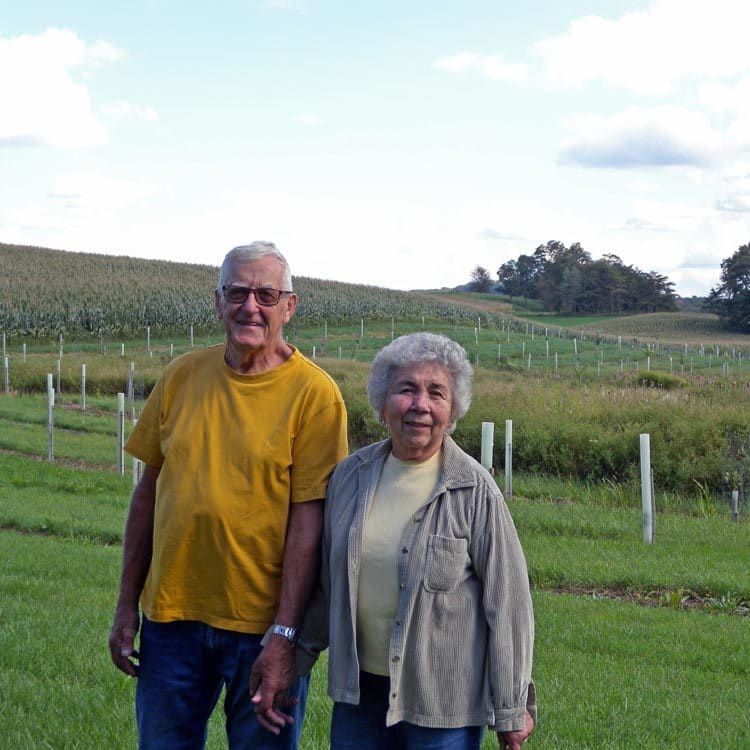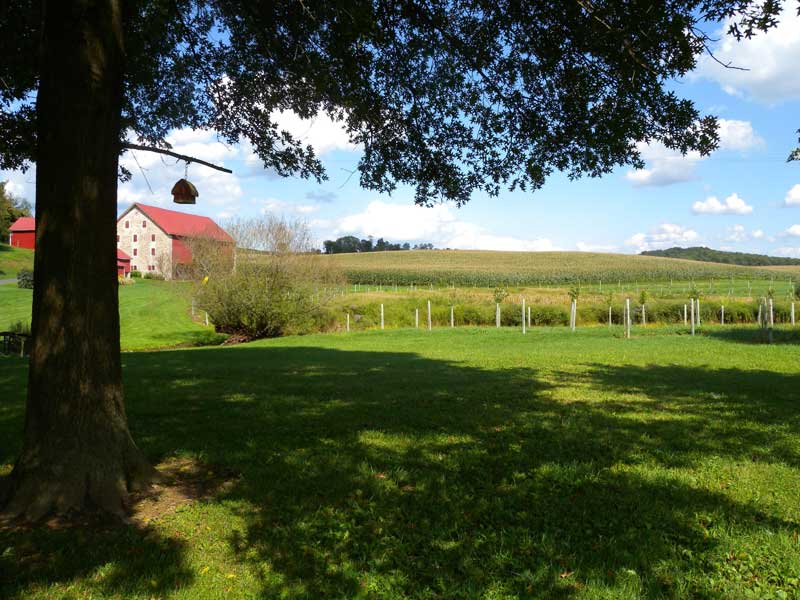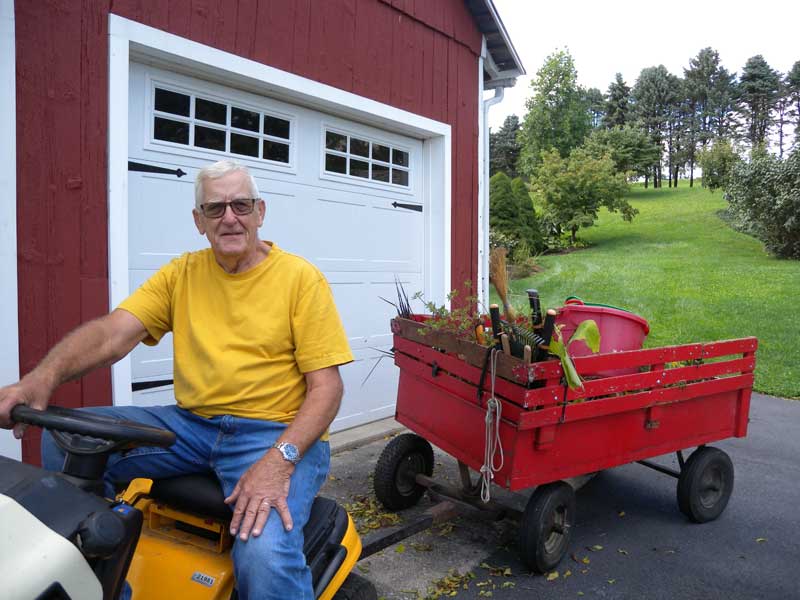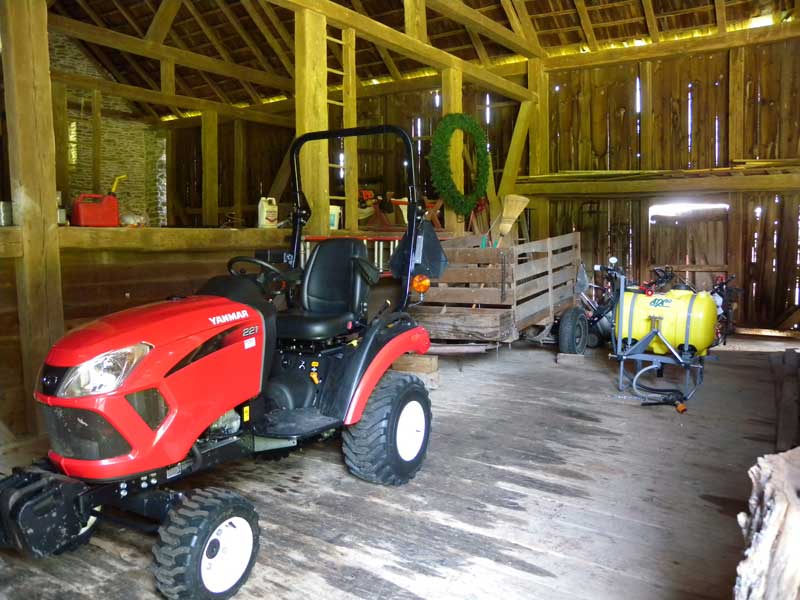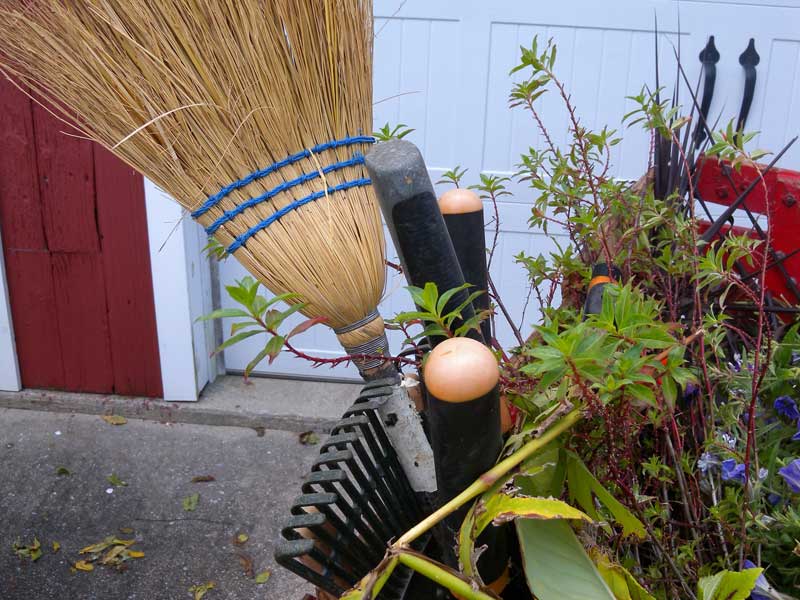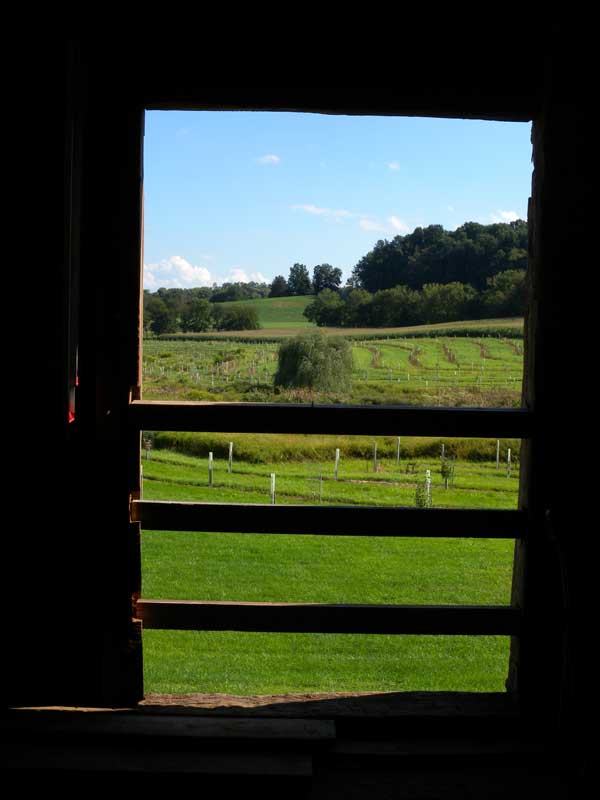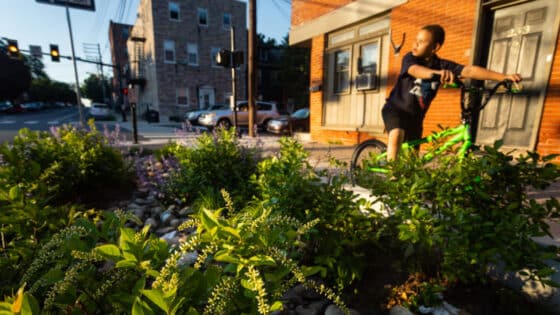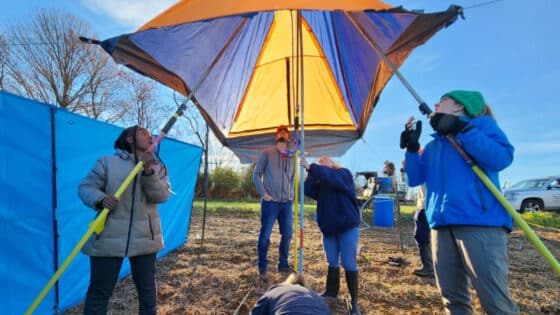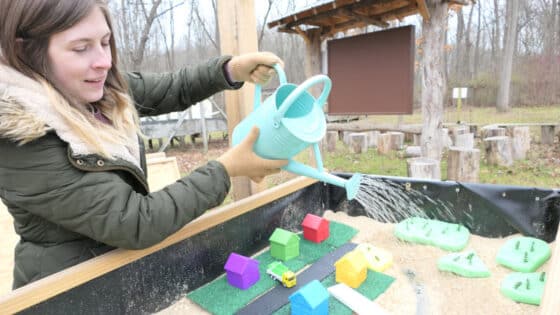By Belinda Griswold
Forested streambanks are beautiful in a different way than manicured lawns running up to the river’s edge, and Bud and Marilyn Miller are going big with theirs. At 11 acres, and with over 1,500 new native trees and shrubs recently planted, their streamside forest will protect and further purify the waters around their historic Robesonia farm.
The Millers have a hand-dug well supplying their home from which they’ve been drinking for decades, and know firsthand how important clean water is to their family and community.
Married for 58 years, and with a large family including 6 kids and 18 grandkids, Bud and Marilyn now see their newly planted forest as a valuable investment for future generations. After having learned of conservation efforts for Tulpehocken Creek, they decided to put their learning into practice on their own land.
“We wanted to clean up the water for the next generation,” says Marilyn. “We used to mow down all the vegetation along the stream, but now we understand the importance of plants and trees growing along it.”
The Millers installed the buffer with help from the Stroud Center, the Berks County Conservation District, and USDA’s Farm Service Agency and Natural Resources Conservation Service. Funding came from the William Penn Foundation and USDA.
Their stream drains into Blue Marsh Lake, and Bud and Marilyn know they’re doing their part to keep it clean, while keeping valuable topsoil on their land for crop production and wildlife cover. Further downstream, the Millers’ small actions add up, as other farmers and landowners join the growing movement to keep their streams shaded, cool, and clean with streamside forests.
